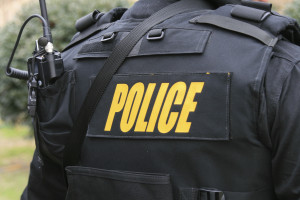
Best Evidence Rule
So what is the Best Evidence Rule? The Best Evidence Rule is a term used to refer to Section 90.952 of the Florida Statutes. Although this section of the Florida Statute never specifically calls itself the Best Evidence Rule, that is the term that this law is referred to. Plainly put, the Best Evidence Rule basically states that instead of introducing other pieces of evidence to show writing, a recording, or a photograph, the Best Evidence Rule asks to actually see the original evidence (i.e. the writing, the recording, the photograph, etc).
In other words, the drafters of this Statute are saying, “why would we let Witness A testify to what’s on the video when we can just watch the video?” Therefore, as a general rule, the original writing, recording, or photograph is necessary in order to actually talk about the contents of them. It’s a tool often used by car accident lawyers.
Exceptions to the General Concept of the Best Evidence Rule: In certain instances, the original is not necessary however. Florida Statute 90.953 states that other evidence (i.e. evidence different from original) is allowed where: (1) all originals are lost or destroyed, unless the proponent lost or destroyed them in bad faith; (2) An original cannot be obtained in this state by any judicial process or procedure; (3) an original was under the control of the party against whom it was offered at a time when that party was put on notice by the pleadings or by written notice from the adverse party that the contents of such original would be subject to proof at the hearing, and such original is not produced at the hearing; (4) the writing, recording, or photograph is not related to a controlling issue in the case. If any of these are satisfied, then the outside evidence is admissible.
Example of Best Evidence Rule in Application: In Dyer v. State, 26 So.3d 700 (Fla. 4th DCA 2010), the 4th District Court of Appeals looked at the testimony of a store manager concerning contents of surveillance recording. At trial the Circuit Court allowed the manager to testify to the contents of the video despite not actually having the ability to play the video. The State told the Court that they couldn’t play the video because of technical difficulties. The Circuit Court allowed the manager to testify to what he saw in the video, describing what Defendant did, and how he stole items from the store. The Defendant lost at trial and appealed, arguing that the manager should not have been allowed to testify to the video or its contents.
On Appeal, the 4th District Court of Appeals AGREED with the Defendant, citing the Best Evidence Rule. The Court said that none of the four enumerated exceptions apply. The inability of the State to play the video was because of technical abilities, not because it was lost or destroyed. The Court stated that the contents of the video directly went to the merits of the case. Therefore, the Best Evidence Rule Applies, the manager should never been allowed to testify, and the case was reversed and remanded back to the Circuit Court.
If you are looking for an experienced criminal defense lawyer in the Orlando area or the State of Florida, don’t hesitate to contact us know. Our criminal defense attorneys have over 20 years of experience successfully litigating criminal cases, including juvenile criminal cases, traffic criminal cases, CDL cases, and more. We offer free consultation and payment plans.
In addition to our Orlando locations we have offices across the State of Florida and are always available to speak with you: